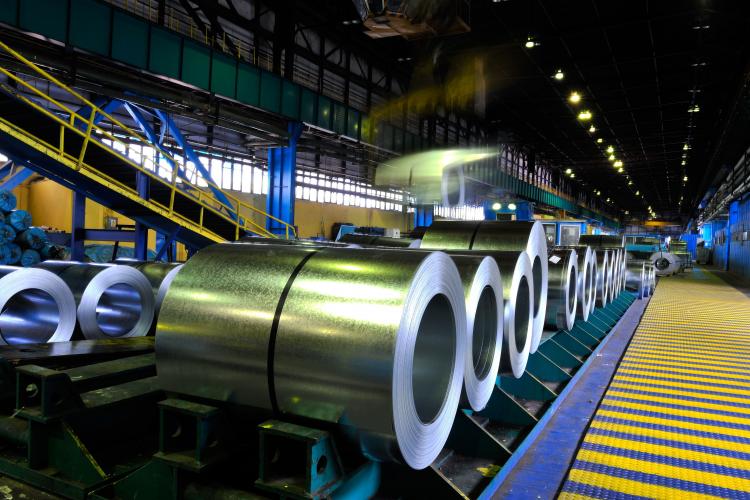Cabinet Office Looks to Reduce Use of Imported Steel
The Cabinet Office has reminded procurement chiefs that UK steel should be used on state-funded construction projects.
The department has issued a procurement policy note (PPN) bringing together the various methods that seek to promote a “level playing field” for the domestically produced building material. The policy follows concerns that Russian-produced steel is being used in the UK despite sanctions, via a customs loophole.
Referencing the Treasury’s Green Book, the National Procurement Policy Statement, the Construction Playbook and others, the new document states that the UK steel sector “plays an important role in our economy”.
As well as reminding buyers of the importance of considering climate change and social value when ordering material for sites, the policy note clarifies data-reporting requirements.
All organisations in charge of projects worth £10m or more, or using over 500 tonnes of steel, must submit an annual steel return to ministers, the guidance states. This must include the quantity of the material used, the product type and – critically – origin information.
In-scope bodies must file this data within 10 weeks of the end of each financial year, and record whether the origin stated is recorded in certification as the location where steel was melted and poured.
The move follows concerns that Russian steel products, such as slabs and blooms, are being exported to third-party countries, where the products are further processed and can then be considered as coming from the third-party country for customs purposes.
Labour MP Stephen Kinnock wrote to the government last year warning that “significant quantities” of steel were being imported in this way and used on public projects in the UK despite sanctions banning direct trade.
Guidance issued alongside the latest Cabinet Office note urges client bodies to “encourage their suppliers to collect data in real time as steel is delivered to site, in order to avoid having to do this retrospectively at the end of the year”.
A spokesperson for UK Steel said: “For UK construction, the new PPN should increase home-produced steel used in taxpayer-funded projects. The new requirement to consider where the steel was made is hugely important. In the past buyers may not have known where their steel came from.
“Constructors can have more confidence in knowing where steel is made, getting a handle on the quality and source of the site materials. Plus, it is more carbon-efficient to produce steel in the UK to high British standards than import from foreign countries, with all the carbon emissions associated with transporting the produce to the UK.
“We are keen to hear from constructors [about] what the steel industry and government can do to help use more British-made steel in their future projects.”
Steel prices in the UK soared last year, starting at about £350 per tonne and peaking at more than £1,200 in April, prompting warnings from HS2 about the project risks brought about by material price inflation. There has since been little respite: in December some production was temporarily halted in the face of soaring energy costs.
